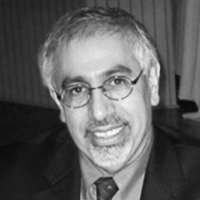Question
AN ENG I did recently on a patient who had a complaint of imbalance rather than true dizziness or vertigo, showed a 35% left weakness, as well as a lack of ocular inhibition on calorics. In addition there was sustained left beating nystagmus in the body left, eyes closed position. Also, the patient was extremely dizzy after the right warm air irrigation. This reaction did not really subside after a 15 minute rest period, but the patient agreed to allow the left irrigation. After the left irrigation, she was dizzy for over 2 hours, requiring the doctor to prescribe valium, which alleviated her symptoms slightly. She even reported significant dizziness the following day. The doctor who referred the patient found some literature indicating the possible diagnosis of MS in a case like this (lack of inhibition and severe vertigo). Any references you could provide or any experience with a similar finding would be appreciated.
Answer
The following article is a good reference for common vestibular findings in patients with MS:
Williams, N P; Roland, P S; Yellin, W. Vestibular evaluation in patients with early multiple sclerosis. The American Journal of Otology vol. 18, no. 1 (1997 Jan): 93 100.
It also contains a table listing the findings of previous studies in MS patients. Failure of fixation suppression or lack of ocular inhibition as described in the question, is not a common finding in this patient group. Neither is the hyperactivity of caloric responses.
The ENG results in this patient require further scrutiny. It seems that only warm calorics were performed but the peak responses are not given. The description suggests that responses were very strong and perhaps hyperactive (greater than 80 degrees/sec). If so, failure of fixation suppression should be interpreted with caution. The ability to suppress caloric nystagmus depends on the intensity of the response at the time of suppression as well as age and gender of the patient. When the caloric responses are large, even normal individuals will not be able to fully suppress the response. Furthermore, when patients are severely vertiginous during caloric testing, they may fail to open their eyes and actually fixate. The examiner must ensure that the patient is indeed attempting to fixate.
The finding of a left unilateral caloric weakness should also be interpreted cautiously. A recent study by:
Enticott, J.C.; Dowell, R.C.; O'Leary, S.J. A comparison of the monothermal and bithermal caloric tests. Journal of Vestibular Research:, 2003, Vol. 13 Issue 2/3, p113.
shows a false positive rate of over 75% for monothermal calorics, especially for warm irrigations. The reported weakness may be due to the fact that only warm calorics have been performed.
Finally, if we accept the findings of hyperactive calorics and failure of fixation suppression, both indicate a CNS lesion. The underlying etiology for such findings are varied. In fact, attempting to determine the etiology based on vestibular function testing alone is usually unsuccessful and not recommended.
Kamran Barin is the Director of the Balance Disorders Clinic at the Ohio State University, Department of Otolaryngology. He has taught national, international, and graduate level courses in vestibular function testing since 1983.

